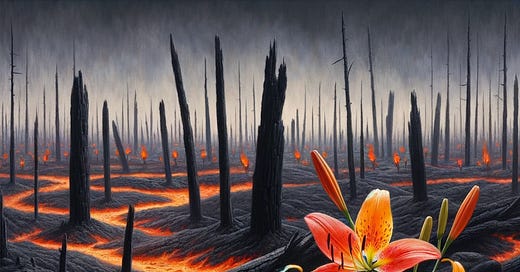Reflections on Hope - Part 1
Despite the challenges, I am hopeful about our common future. But you should not confuse my hope with blind optimism. Let’s be honest, if regeneration were easy, I would not be writing about it. Rather, hope is an action verb—a way of seeing and being and having an impact in the world. Hope is a choice. I choose to be hopeful because hope is grounded in the possibility for change. Hope knows that people are resilient and resourceful. It taps into work on solutions. Hope understands tipping points. It is fueled by progressive social movements. Hope lights a candle in the darkness. It is infectious. Hope inspires.
Being hopeful, in turn, allows me to be positive, which is another choice. Austrian psychiatrist Viktor Frankl observed that even in the Nazi concentration camps (of which he survived four), people could choose their attitude. And having a positive attitude often means being for, rather than against; being pro rather than anti. This is also the spirit embraced by Hans Rosling, co-author of the fabulous book Factfulness, who encourages us to all be possibilitists.
A better world is always possible, for three compelling reasons:
We have seen improvements in the past;
We have a hand in creating the future; and
Being positive is a more effective and satisfying way to be in the world.
Source
Extracted and adapted from Thriving: The Breakthrough Movement to Regenerate Nature, Society and the Economy






Juriaan Kamp and Benjamin Zankel created the concept of "Intelligent Optimism" to describe the sentiment of that a way will always be available despite the immediate feeling of disaster. Juriaan Kamp is a dutch journalist who got tired of not being able to send positive news when they arised in disaster struck zones. This made him start the publication of "The Optimist" to present positive news from all over the world within society, business, community etc. They are now available as a daily e-mail service "The optimist daily"